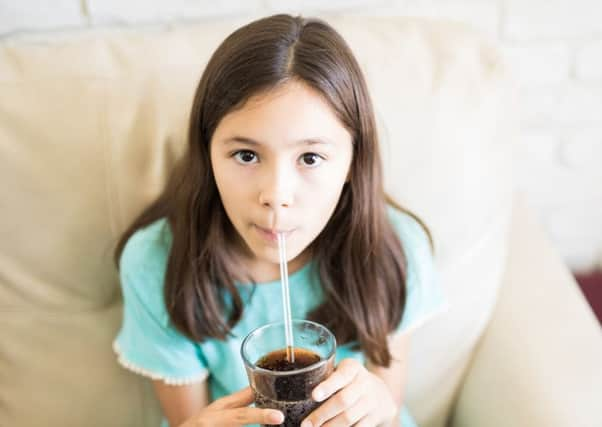Study finds ‘no link’ between sugary drink consumption in children and increased BMI


A study of children aged between four and ten years old has found no direct link between sugar-sweetened drinks and body mass index (BMI).
The study, being presented today at this year’s European Congress on Obesity (ECO) in Glasgow, has led the authors to question whether the so-called “sugar tax” will be an effective way to tackle the childhood obesity epidemic.
Advertisement
Hide AdAdvertisement
Hide AdSugar sweetened beverages (SSBs), including carbonated soft drinks, fruit drinks and energy drinks, are the largest contributor of sugar in children’s diets.
Children aged 11 to 18 years drink on average around 336ml per day – roughly equivalent to one can of a sugary drink. The researchers analysed data from the National Diet and Nutrition Survey Rolling programme between 2008 and 2016 from a group of 1,298 children.
The nationally representative survey gathers information annually from food diaries in which children or their parents record their dietary intake and SSB consumption over a four-day period. The survey also collected measurements of weight and height, which were used to calculate the BMI of the children. In total, 61 per cent of children were classified as sweetened drink consumers.
Ola Anabtawi from the University of Nottingham, who led the research, said: “High intake of added sugars was not directly correlated with high energy consumption. Therefore, relying on a single-nutrient approach to tackling childhood obesity in the form of a soft drink tax might not be the most effective tactic.
“What’s more, our findings indicate that drinking sugar-sweetened beverages is not a behaviour particular to children with a higher body weight. On the contrary, framing sugar reduction in tackling obesity might reinforce negative stereotypes around ‘unhealthy dieting’.
“Instead, policies should focus on those children whose consumption of sugar-sweetened drinks substantially increases their total added sugar intake in combination with other public health interventions.”
Alongside changes in dietary quality and levels of physical activity, sugar-sweetened drink consumption has been suggested as influencing trends in weight gain seen in children in the UK.
This led to the introduction of a Soft Drinks Industry Levy in April last year. It has been mandated as part of the Childhood Obesity Plan and is expected to result in around an 8.5 per cent reduction in rates of children and adolescents who are obese.